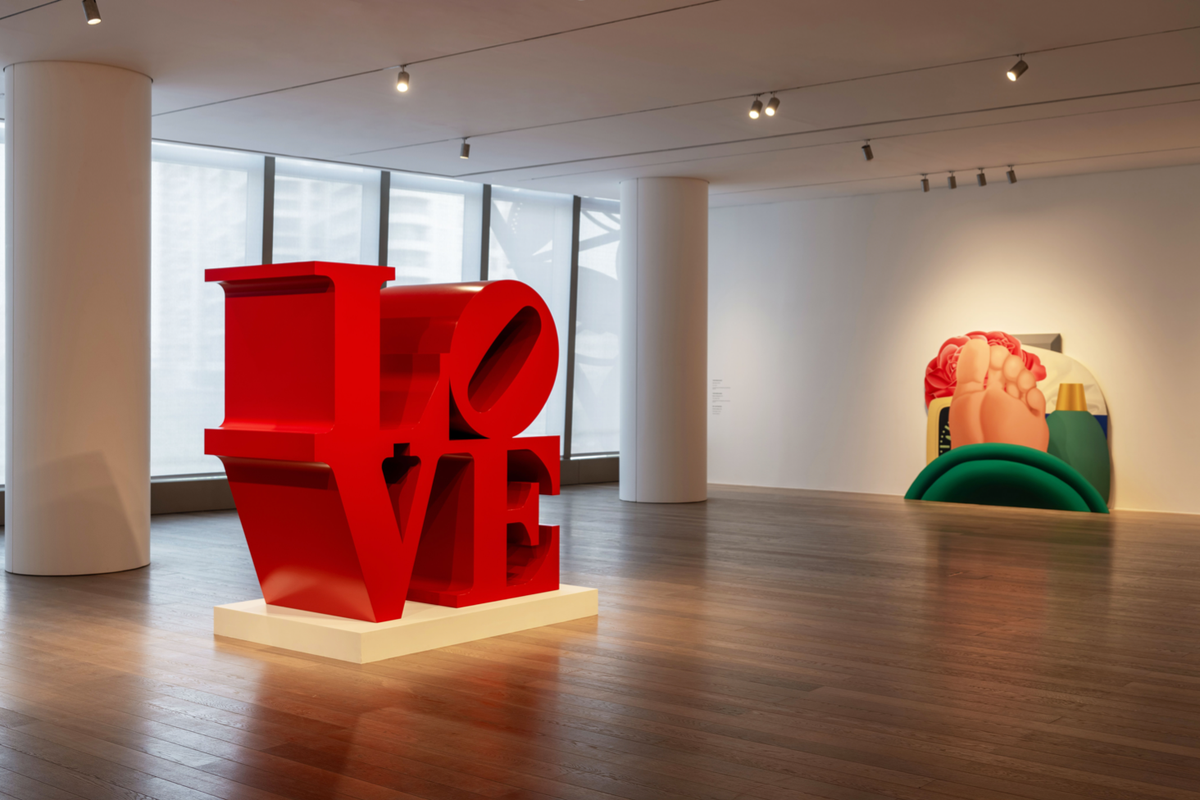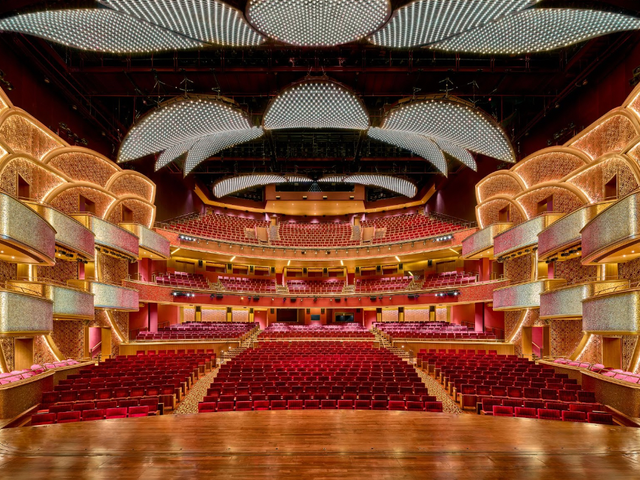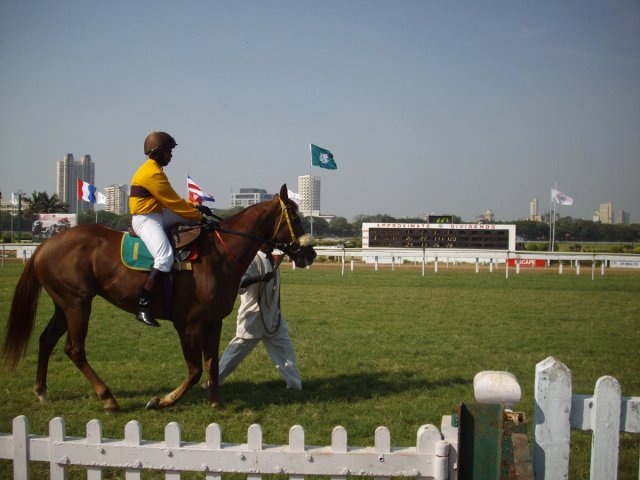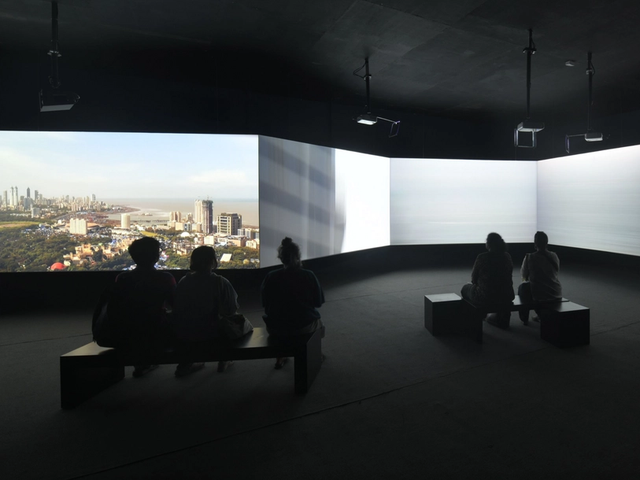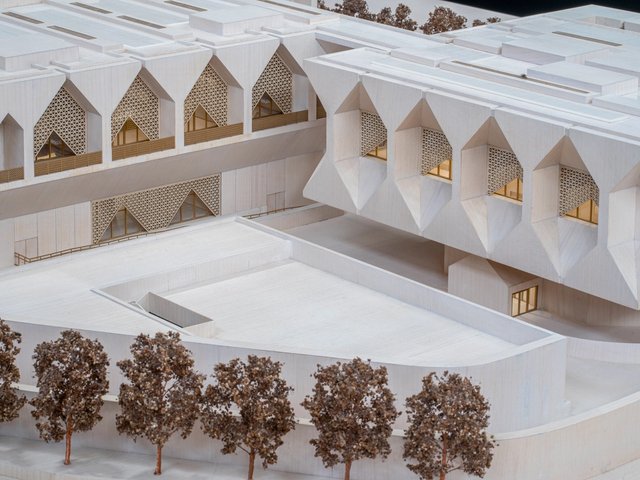When Nita Ambani, India’s wealthiest woman, opened her eponymous cultural centre in Mumbai last March, many in the art world were intrigued. Despite the colossal fortune of her husband, Mukesh Ambani ($112bn, according to Forbes), the family had not been leading patrons of the nation’s visual arts, in comparison to other powerful industrialist clans. The Nita Mukesh Ambani Cultural Centre (NMACC), and more specifically its exhibition space, the Art House—all set within their retail and business hub, Jio World Centre—would provide a clearer picture of their vision for art in India.
A celebrity-studded inauguration proclaimed one side of the NMACC’s mission: to bring Western art and attention to India, and in turn provide a global platform for the nation’s cultural heritage. Equally important, however, is another of the centre’s aims: to make art exciting to a local, non-museum-going audience.
These ambitions are exemplified in its current show, Pop: Fame, Love, Power (until 11 February)—touted as the first major exhibition of Western Pop art in India. Curated by the collector and dealer Lawrence Van Hagen, it brings together works by around ten artists associated with the movement, including Robert Rauschenberg, Ed Ruscha and, of course, Andy Warhol. “A lot of my Indian clients appreciate and collect Pop art. And when you ask someone, ‘which artists do you like?’, they usually say Picasso or Andy Warhol,” Van Hagen says. “If you’re curating an exhibition that is a change for the local scene, it helps to have some familiar names.”
Familiar names and faces are indeed found across the show, which, as its title suggests, is split into themes of fame, love and power, each of which is given its own floor of the four-storey Art House. Van Hagen has assembled Warhol's silkscreens of Jackie Kennedy and Marilyn Monroe, as well as his photographs of celebrities including Gianni Versace and Aretha Franklin. Other crowd pleasers are Roy Lichtenstein’s 1979 painting Portrait of a Woman and Rauschenberg’s nine-metre-long mixed media work Periwinkle Shaft (last shown at Art Basel Miami Beach 2017 by Edward Tyler Nahem gallery).
Filled with mostly recognisable works and obvious choices, this is a safe, surface-level survey of Pop art. Still, that surface is an attractive one thanks to the high quality of the works on show, many loaned from well-regarded foundations, museums and galleries. The show’s standout—a late sculpture of aluminium flowers by Claes Oldenburg, from the inventory of Pace Gallery—also benefits from a visually appealing dialogue with the petal-shaped metal structures affixed to the building’s exterior. A lone attempt to link the show to its Indian context is found in an Ed Ruscha painting of the Himalayas; the lack of any works made by Rauchsenberg during his time in Ahmedabad seems like a missed opportunity.
Despite saying nothing new, this show can indeed be described as groundbreaking for the very fact of its existence. It is, after all, extremely rare to see so many international works of this calibre in a public space in India, especially outside of an art fair. The Art House contains some of Mumbai’s only climate-controlled rooms with load-bearing floors suitable for showing large, very expensive art. This was key to securing a number of the show’s loans. “It is difficult to get people to loan their $40m painting anywhere overseas, let alone a country that isn’t known for staging shows of this nature,” Van Hagen says. “India still has a long way to go in terms of handling, shipping and professionally exhibiting art.”
Most of the works in the show are loans from Van Hagen’s “personal network”, including the prominent Warhol photography dealer, Jim Hedges IV. Two works, including a Robert Indiana LOVE sculpture (found in the exhibition’s ‘love’ section, naturally), are loaned from the private collection of Isha Ambani Piramal, Nita Ambani’s daughter, who oversees the programme at the Art House.
That LOVE sculpture is one of several ‘Instagrammable’ photo opportunities presented by the show, the culmination of which is Warhol’s interactive installation Silver Clouds, which fills the space’s top floor with silver mylar balloons, suspended between the floor and ceiling. Scrolling through the NMACC’s tagged posts on Instagram, one can observe hundreds of visitors—a number of them prominent Indian social media influencers—playing with the balloons.
The NMACC’s less serious approach to art is also evident in the exhibition’s programme, for which the centre has staged immersive activations such as an ecstatic dance and meditation workshop. Even the centre’s opening hours, until 7:30pm on weekdays and 10pm on weekends, are longer than virtually any other art space in the city, encouraging visits from professionals after office hours. Exhibitions can be judged in several ways, besides the merits of their curation. And in a country where museum attendance is still pitifully low, any efforts to increase visitor engagement with art—even if they come at the expense of academicism or sophistication—should not be dismissed.
Consider, for example, another exhibition of Pop art in India, staged in 2022 by the Kiran Nadar Museum of Art in New Delhi, one of the leading private institutions in the country. Pop South Asia (which was organised with the Sharjah Art Foundation) was groundbreaking in that it posited a new genre of regional Pop art from the Indian subcontinent—one that included virtually unknown names and reframed familiar ones. The well-received show will likely prove influential in shaping art discourse and future scholarship. But whether it introduced genuinely new audiences to art is less certain. Surely it received fewer influencers during its run.
All this visitor engagement will, of course, benefit the Ambanis' business. The NMACC's position within their luxury shopping mall encourages a flow of shoppers into the shows, and the culturally curious into their stores. But hopefully it will benefit the local art scene too. Just as major auction houses are increasingly attempting to convert bidders of luxury goods into more traditional categories, the NMACC, through its approachable exhibitions, might begin to introduce a new group of moneyed individuals to art.
Speaking earlier this month at a panel discussion at the India Art Fair in New Delhi, Darshan Mehta, the president of Reliance Brands Limited, owned by Mukesh Ambani, explained how Reliance turns sporadic consumers of luxury goods into habitual ones by a process of "aesthetic refinement through access and awareness". Art, he continues, is central to "the theatre of luxury".
At the Art House, one does not merely exit through the gift shop, they are surrounded by it—a fact that chimes with the themes of consumerism found throughout this Pop art show. Warhol is thought to have once said that "good business is the best art". The NMACC takes those words to heart.


